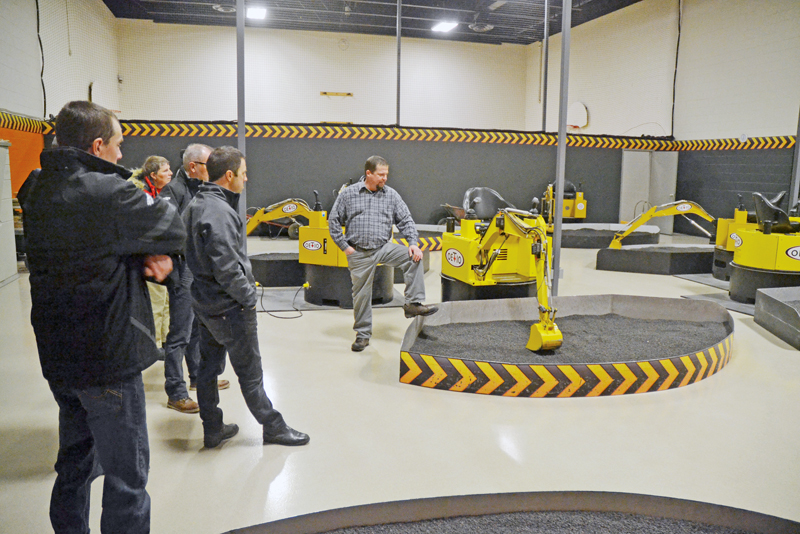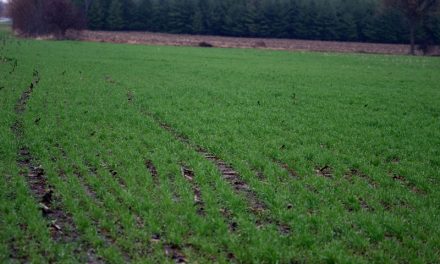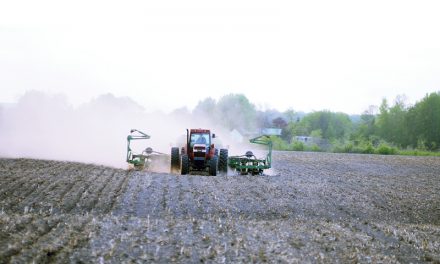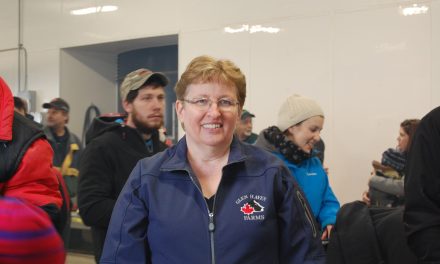Supporting industry
Small scale machinery is available indoors at the Operating Engineers Training Institute of Ontario campus in Morrisburg so students have the chance to hone their skills outside of regular class hours. Sawyer Helmer photo

Instructor Randy Dirgemans showed members of the Stormont Soil and Crop Improvement Association some of the latest technology in virtual operating to help students practice their skills. The three screens pivot to offer different vantage points for different machines.
Sawyer Helmer photo
MORRISBURG – The Stormont County Soil and Crop Improvement Association held their annual meeting in Morrisburg on Wed., Jan. 16. Before getting to the normal meeting business, members were treated to a tour of the Operating Engineers Training Institute of Ontario building and operations.
Training director Rod Mackenzie and training supervisor Greg Runions, provided tours to the group of the grounds where students complete year-round all weather training on heavy equipment like excavators, back hoes, graders and dozers, along with some training for oil piping and mobile crane training.
The courses are designed to give students two weeks of in class instruction followed by four weeks for each piece of equipment. Union apprentices who have their schooling paid for often are trained in each piece of equipment while Mackenzie said that non-union workers are more likely to choose one due to costs of the program.
While heavy equipment operating is a voluntary trade, the guides said, licensing is possible in the future and successful candidates have the opportunity to get a federally recognized red seal.
Many of the students who attend the Morrisburg campus come from northern and western Ontario, with most being union apprentices. Numbers follow retirement rates and construction trends but the guides told the crowd that the school is almost always booked full in the winter months. This way, students can work through the summer during peak construction times. While students range from 18 to 25 years old, they have seen older operators attend the school when undergoing a career change or wanting to further their knowledge.
From workers who haven’t been contracted by the union, the school offers a pre-apprentice program. Over six weeks working on smaller machines followed by an eight week placement with a unionized company, 95 per cent of the pre-apprentices end up coming back as union apprentices. Attending is easy as long as students have their Grade 12, pass the entry exam and have a current drivers license.
The Morrisburg campus houses 18 instructors, two mechanics and two apprentices to keep the 160 pieces of equipment in peak condition and features a newly renovated building with spacious single occupancy rooms and some of the latest technology to help students practice their trade outside and in the building.
“Trades should be promoted strongly,” said Mackenzie. “Somewhere along the line it got a bad rap but it’s not like that at all.” He continued that especially for industries such as agriculture, having qualified tradespeople to support the industry is essential.
While the school throws a lot at their students in only a few weeks, is produces highly trained operators who apply 240 hours of time on their first machine and 160 on the others. This provides the apprentices with a solid foundation as they work towards their 2,500 hours per machine to be come a journeyman.













